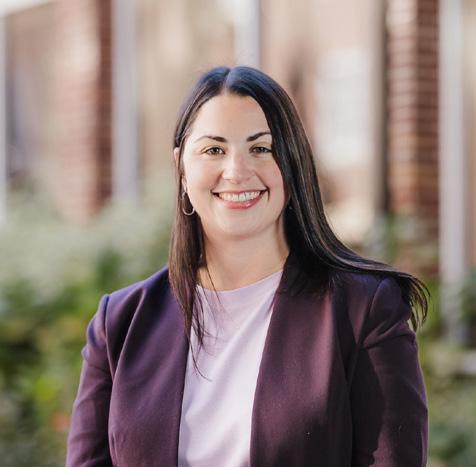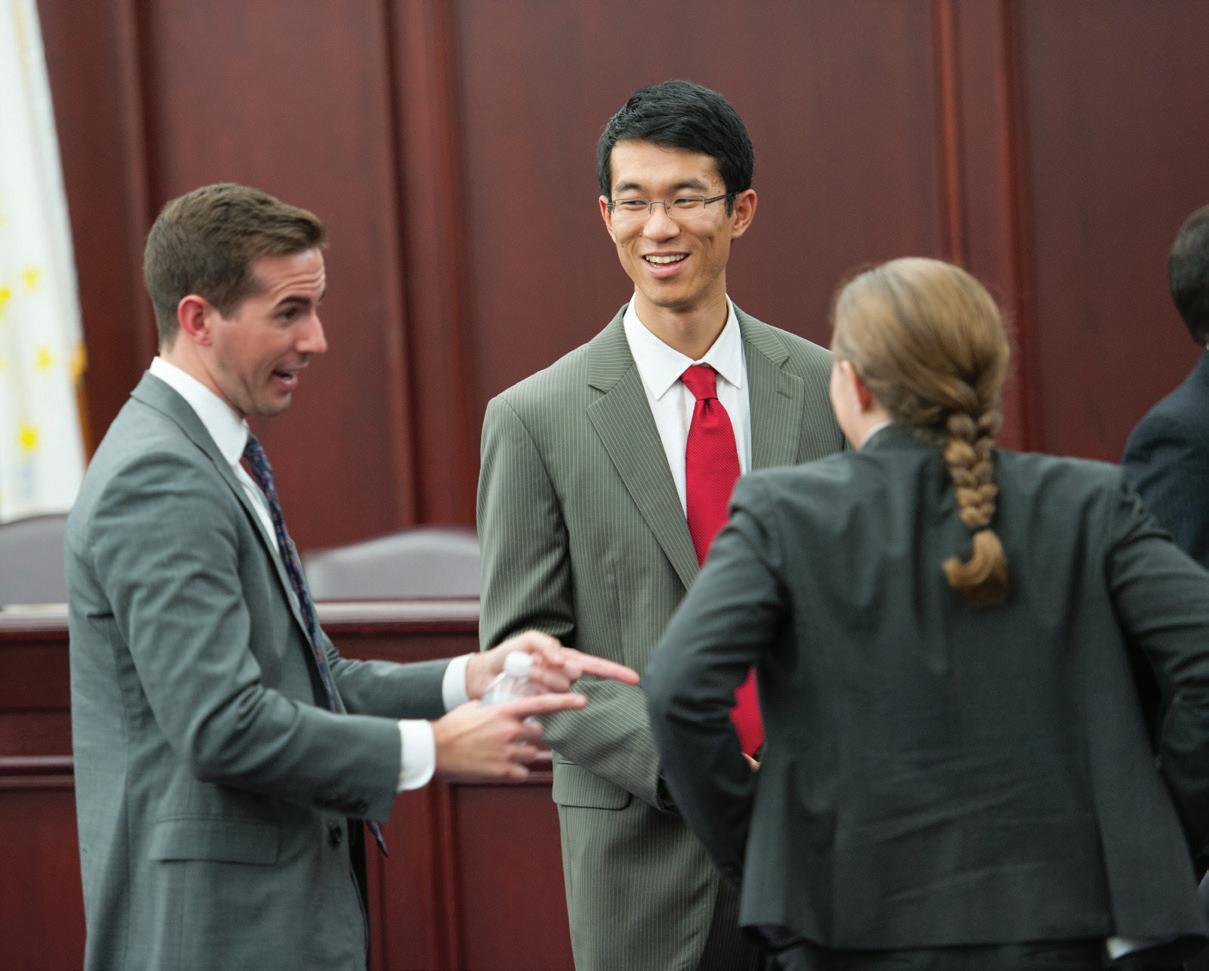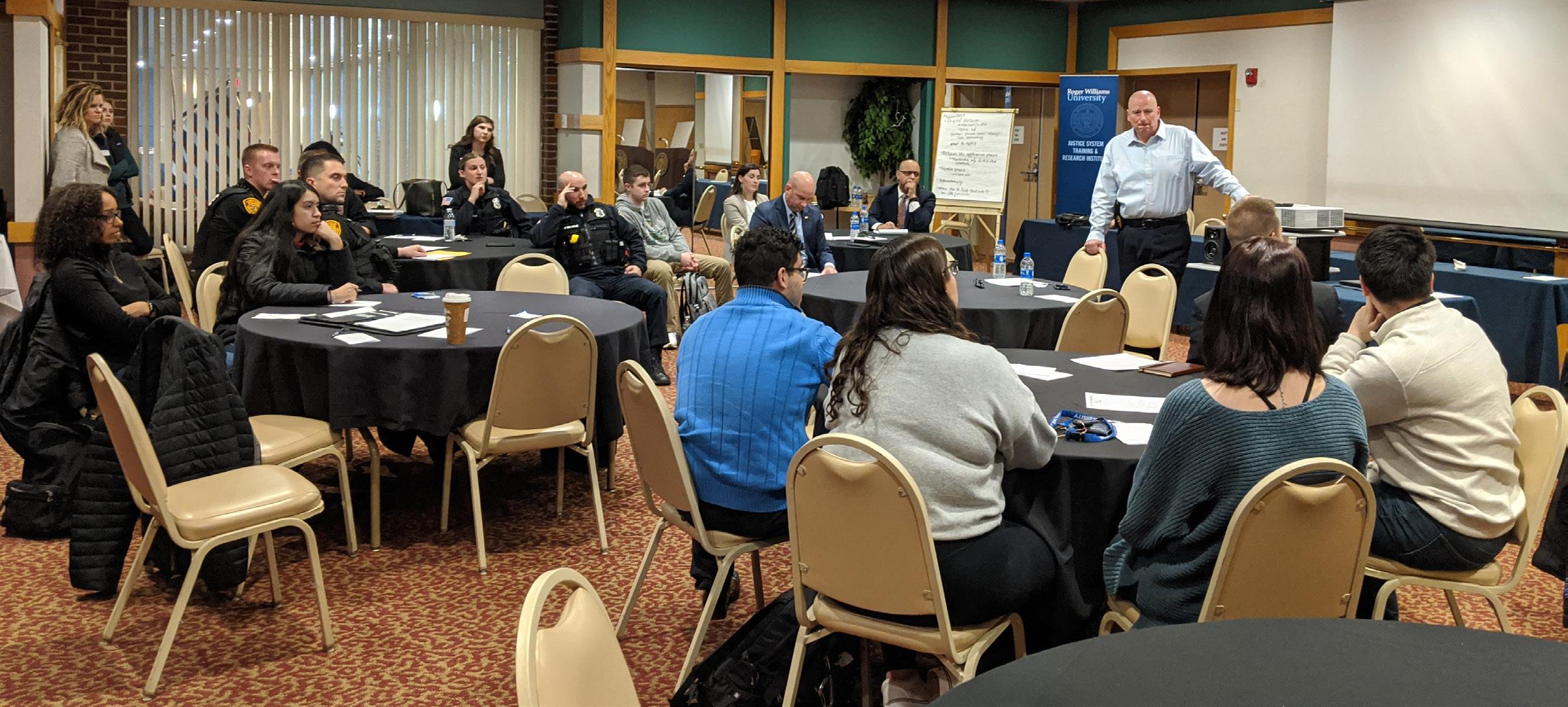Your Path to SUCCESS SCHOOL OF JUSTICE STUDIES
 Bristol & Providence | Rhode Island
Bristol & Providence | Rhode Island

 Bristol & Providence | Rhode Island
Bristol & Providence | Rhode Island
In addition to learning foundational theories and analyzing data in the School of Justice Studies (SJS), students develop close relationships with our faculty experts and put their learning into practice.
Graduates with degrees in justice studies fields are highly sought-after and in demand. There is remarkable job growth in several areas including social justice, forensics, and cybersecurity. Your RWU experiences will prepare you to get hired in private industries or public service careers at the state or federal level.


Douglas White was one of the earliest experts in cybersecurity. He brings the experience he’s gained working as a security consultant, technology specialist, penetration tester, and forensics analyst to his teaching.


“All my classes are hands-on classes based on real-world certifications and experience. All of our courses were designed by industry experts. I sat down with all of them and said, ‘what do you want our graduates to know.”
Dr. Marriott was recently credited for using Virtual Reality (VR) as a tool to shift the forensic science educational paradigm and raise the training bar to new heights. She brings this expertise to RWU, involving students in cutting-edge Virtual Reality experiences.

The Legal Studies program prepared me for day one of law school. I enjoyed learning from such experienced professors and being challenged in ways that helped me develop professionally. I’ve used the skills I learned throughout my legal career.

 NICOLE M. VERDI ‘11 L’14
NICOLE M. VERDI ‘11 L’14
Head of New England Government Affairs & Policy at Orsted Americas in Providence, RI
Throughout my career, I have always been involved in community public awareness matters and issues that affect our state and communities of color in particular. I knew that I wanted to continue on with community work. RWU helped me tremendously in achieving what I knew I wanted: a degree. I was the first in my family to receive a college degree, so it meant a lot to my parents and family.
TONYA HARRIS ’02 CRIMINAL JUSTICE
The degree I got from Roger Williams enabled me to branch out into different career paths. I can dip my toe in lots of different topics like incident response and software engineering.
ANTHONY MOSSESSO ‘18 CYBERSECURITY & NETWORKING

Security
There are no better people to learn from than those who are out in the field doing exactly what you want to do. [RWU’s] program has pulled in some really great professors to help get our foot in the door and get students internships and experiences like I’ve had.
REBECCA MILLARD ‘18
FORENSIC SCIENCE
Criminalist I at City of Boston Police Department, M.S. in Biomedical Forensic Science from Boston University School of Medicine
Executive Director, Rhode Island Coalition Against Domestic Violence, Providence, RI Operations Analyst at Hubspot in Cambridge, MAIf you are interested in ultimately working in the legal field, your undergraduate degree at RWU can provide access to accelerated legal education pathways. As the state’s only law school, RWU Law is able to offer a level of access and undivided attention of the state bench and bar that few institutions can rival.


RWU’s program is ranked in the
by College Factual for 2022.

In the Forensics and Networking Security (FANS) lab, students work with cutting-edge technology to learn how to solve issues around hacking and cyberattacks and discover how to acquire, analyze and manage evidence collected from computers or mobile devices. Cybersecurity and Networking students work with simulators that emulate the computer hardware, software, and networking you’ll see in the real world to build real-time networks, conduct penetration testing, and learn how to do security analysis and monitoring.
Our strong industry connections help provide internships or co-op experiences at a variety of agencies and companies such as the U.S. Marshals Service, R.I. Office of the Attorney General, R.I. State Police, Naval Investigative Service, M.A. State Crime Lab, Raytheon Company, Dell SecureWorks, Security Weekly, MediTech, and FM Global.
The interdisciplinary Forensic Science program works closely with RWU’s School of Social and Natural Sciences, including utilizing high-tech lab facilities. Many students choose to pursue certification in biotechnology, developing mastery of technical skills and boosting their resumes.
In a Social Justice seminar taught by Professor of Criminal Justice Robert Engvall, students examine types of social injustices: racism, sexism, classism, homophobia, and ableism. They critically explore such social issues as immigration, family and reproductive issues, work and welfare issues (including income inequality), affirmative action, and housing and homelessness. Students lead the discussions themselves as they explore their own perceptions and compare those perceptions with how our society addresses real and perceived social justice issues.
Based in the School of Justice Studies, the Justice System Training & Research Institute (JSTRI) is a resource for justice system personnel to enhance their professionalism through seminars and professional development training. Through the JSTRI, undergraduate students learn alongside experts in the field.
You’ll experience the justice system up close through field visits. For example, RWU students have toured all areas of the Louisiana State Penitentiary, the world’s largest prison, which included speaking with inmates and prison staff.